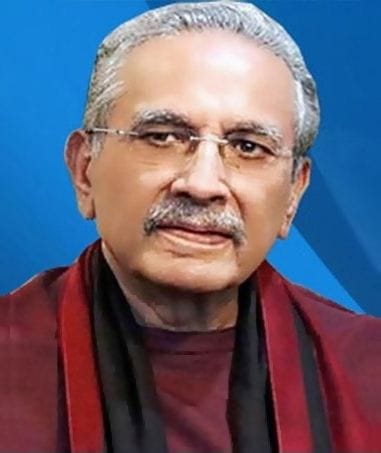Tariq Khattak
Islamabad: (June 16, 2025)
Renowned economic analyst and former President of the Islamabad Chamber of Commerce, Dr. Shahid Rasheed Butt, has stated that the current budget suffers from multiple flaws and prioritizes short-term revenue targets over long-term economic stability. He emphasized the urgent need for comprehensive reforms, including expansion of the tax base, documentation of the informal economy, and a clear shift toward export promotion, in order to steer the country out of its economic crisis.
Addressing members of the business community, Dr. Butt said that instead of offering relief to existing taxpayers, the government has further burdened them, while failing to take effective measures against non-filers and unregistered business segments. The incentives announced in the budget are insufficient and ineffective in stimulating economic activity.
He warned that the continuous increase in tax burden is eroding business confidence. The extension of super tax, he noted, is not only damaging the export sector but also discouraging industrial investment—an outcome detrimental to long-term growth. While acknowledging a few positive aspects in the budget, he asserted that they are not substantial enough to attract meaningful investment.
Dr. Butt highlighted that factors such as high interest rates, rising energy costs, and imbalanced taxation continue to create an uncertain investment climate. Without fully utilizing existing industrial capacities, new investments are unlikely to materialize.
He further stressed the need to modernize and reform the Federal Board of Revenue (FBR) in line with contemporary requirements. Rather than relying on discretionary powers granted to FBR officials, an automated and science-based taxation system should be introduced to ensure that businesses can operate without fear or uncertainty.
The biggest challenge currently facing the country, he argued, is the declining investor confidence, which can only be restored through consistent, transparent, and business-friendly policies. Although the budget reflects the government’s intention to reduce the fiscal deficit and public debt, it also restricts the prospects for economic growth.
He stated that tribal area industries must not be allowed to operate outside the formal tax structure. Industries operating in the tribal areas must be brought under the full tax regime without any exemptions, as these regions have become safe havens for tax evasion and smuggling. He emphasized that continuing to grant undue concessions only encourages illegal practices and undermines the rule of law. Those exploiting the system for personal gain should face strict financial accountability rather than enjoy any form of leniency or protection.
Dr. Butt concluded that if the government genuinely wants to promote economic development, it must roll back the super tax, expand the tax base, and reduce import dependency in favor of export-led growth. Otherwise, this budget may provide temporary relief to the economy, but the dream of sustainable development will remain unfulfilled.

